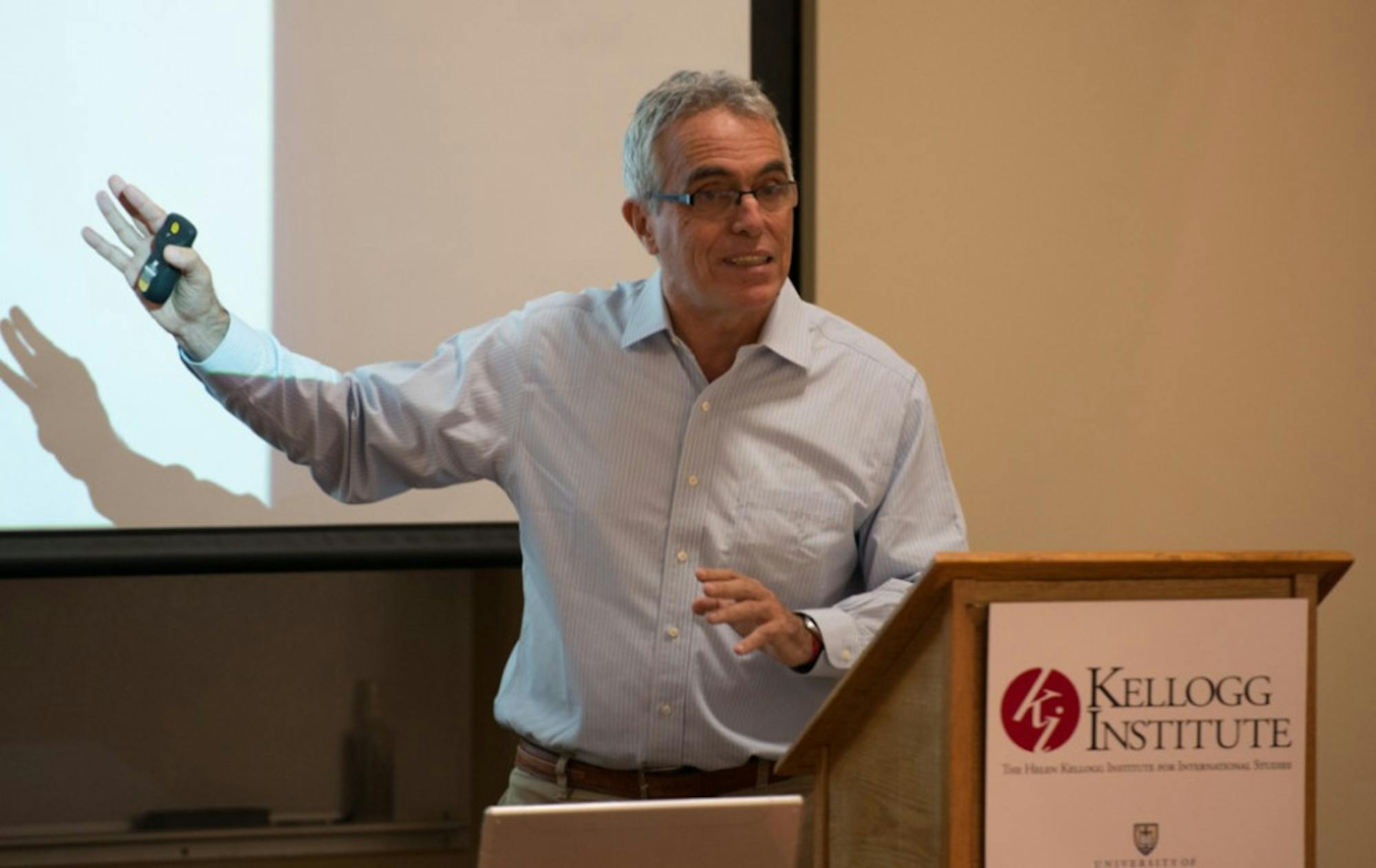Diego García Sayán, judge and former president of the Inter-American Court of Human Rights and former Foreign Affairs Minister of Peru, spoke Tuesday at the Hesburgh Center on the importance of the court in promoting democracy in Latin America.
Sayán spoke at an event sponsored by the Kellogg Institute of International Studies. He said that he has “an optimistic view” on the role of the Inter-American Court of Human Rights.

Emmet Farnan | The Observer
Emmet Farnan | The Observer
Sayán cited the dramatic improvement of economic conditions across the Latin American world and the decrease in the number of armed conflicts and coups as other key factors in the growth of a democratic tradition and simultaneous decrease of human rights abuses in Central and South America.
Sayán said the court’s process and choice of cases can lead to the “evolution of different attitudes in a democratic society.” He said the court “receive[s] cases of torture, disappearance … and this new opportunity to deal with cases of discrimination of sexual orientation, news cases of access to public information [and] new very complex cases of freedom of expression.”
The court's total number of cases has increased — 32 percent of all cases tried by the court since 1979 have been tried in the last four years, Sayán said. He said the increase is due to the greater variety of cases brought before the court, not a deterioration of human rights in the region.
“The court has a big difference with national courts worldwide or with other international courts like the European Court of Human Rights in the sense that when the court enacts its ruling, it retains the process of following the compliance of its rulings," Sayán said. "… [It is] a system which we have discovered has, at the end of the day, been very important to guarantee that the implementation of the ruling follows international procedure.”
These kinds of changes can take the form of financial reparations or public apologies by a nation’s government or even changes to laws, regulations or national constitutions, Sayán said. For instance, the Inter-American Court of Human Rights recently forced legal change in Mexico that prevents the use of military tribunals in the investigation and trying of human rights violations.
Diego García-Sayán will be in residence from Sept. 8 to Oct. 8 as part of the Kellogg Institute’s visiting fellowship program.









